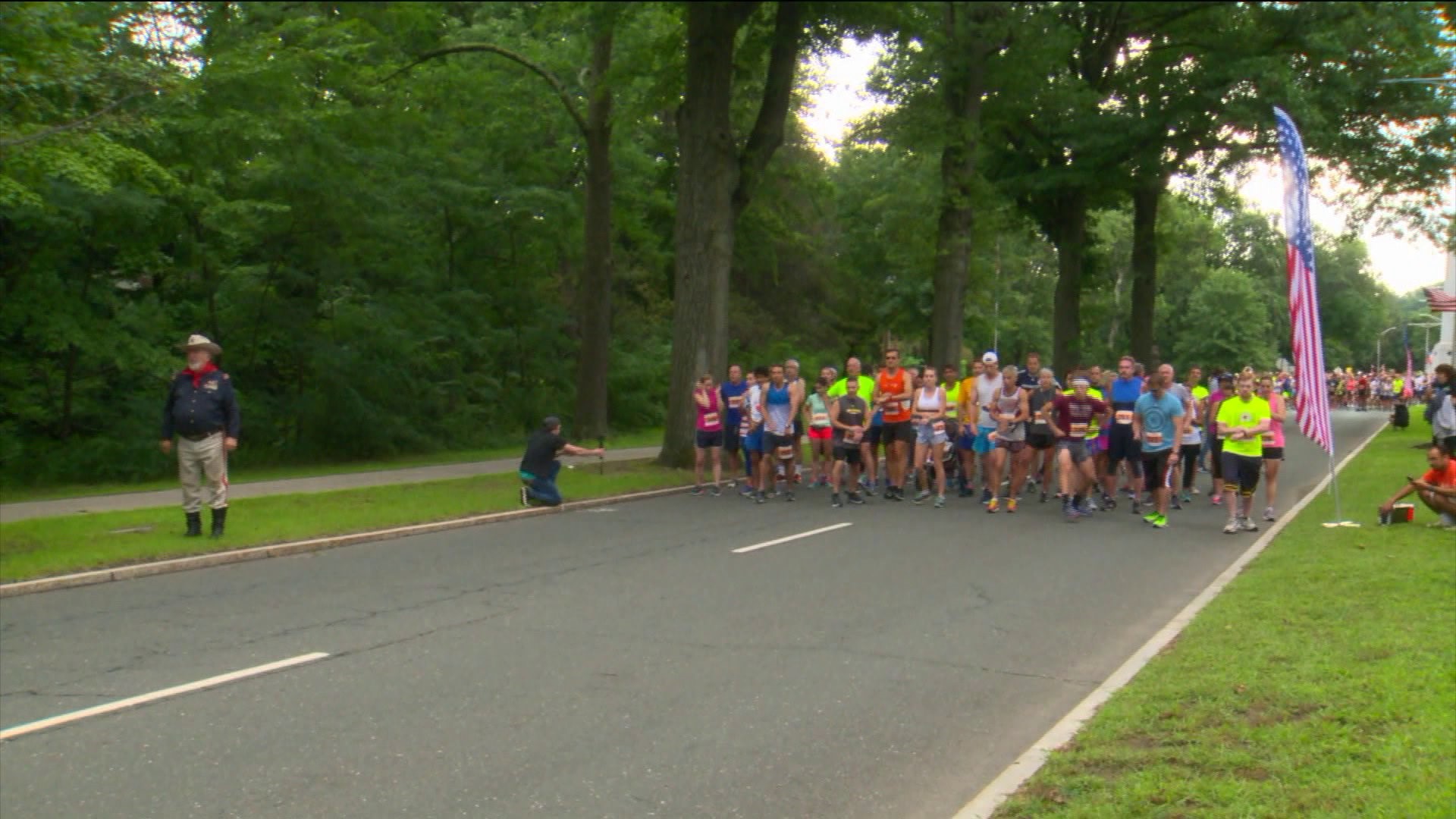Bristol Hospital was out at the Bristol Half-Marathon and 10k last month, essentially giving runners a free sample of a treatment for the kinds of chronic pains from which athletes often suffer. The results were encouraging.
“It only took one and then a whole bunch of them lined up,” said Dr. Peter Bellezza, and Orthopedist for Bristol Hospital, “the most common thing [the patients said] is ‘I’ve never felt anything like this before and it feels really good.’ ”
The treatment is called EPAT, short for Extracorporeal Pulse Activation Technology. It uses frequent, strong pressure waves to stimulate blood flow and also help the body break town scar tissue that tends to form on tendons and ligaments as a result of years of injury and inflammation.
“It’s kind of similar to a jackhammer,” said Dr. Bellezza, “those sound waves can be pretty aggressive and you can actually feel it deep down in your bone.”
That’s not to say the treatment hurts. Dr. Bellezza said there can be a little tenderness after the treatment, but many patients get an initial, temporary feeling of pain relief from the treatment. The real, lasting effects, though, tend to come six to twelve weeks after the treatment, after the body has broken down and carried away all the scar tissue.
Right now, it’s primarily used of foot and ankle problems, but Dr. Bellezza said it’s also used on knees, elbows, shoulders and the lower back.
“People that come in are patients that have had chronic pain for three to four years that hasn’t gotten better,” Dr. Bellezza said.
He said a treatment regimen usually consists of three to five EPAT treatments, each lasting five to ten minutes, and each spaced at least a week apart. He said the procedure is F.D.A. approved, but is still not carried by insurance. That can be a barrier to treatment, as each one can cost upwards of $700 to $1,000. However, Dr. Bellezza said he’s doing what he can to make it more affordable.
“We’re giving reduced sessions for $100 apiece, so 500 bucks [for the whole regimen],” he said , “and that’s just, more or less, because it’s technology that I believe in and I want more people to have access to it.”

